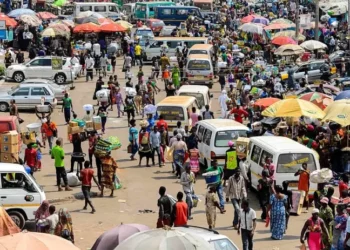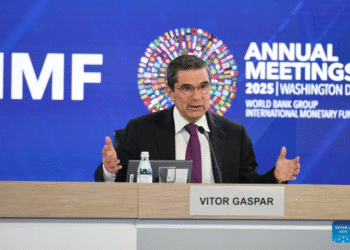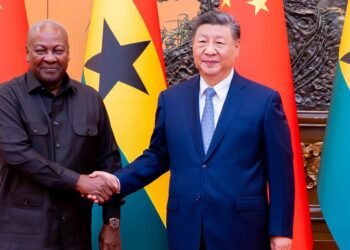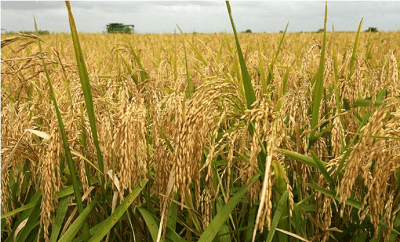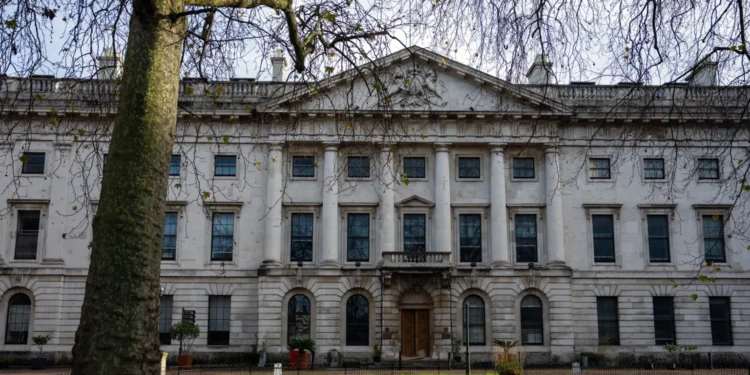In a notable sign of economic growth, Ghana has attracted $56.02 million in Foreign Direct Investment (FDI) during the second quarter of 2024, as reported by the Ghana Investment Promotion Centre (GIPC).
This figure underscores Ghana’s growing allure as a prime investment destination in West Africa and reflects a broad-based economic strategy that bolsters the country’s growth and development.
The GIPC’s quarterly report detailed that 37 projects were registered in the second quarter, with a total estimated investment cost of $58.03 million. The bulk of this investment came from FDI, reinforcing the view that Ghana’s strategic policies and investment climate continue to appeal to global investors. Domestic contributions amounted to $2.01 million, complemented by initial capital transfers of $8.06 million, signifying a strong foundation for economic stimulation and long-term growth.
Manufacturing Sector Leads the Charge
The manufacturing sector was the standout performer, securing $30.47 million from 17 different projects. This substantial investment reinforces manufacturing’s pivotal role in Ghana’s economic blueprint, positioning it as a cornerstone of the nation’s industrial ambitions.
The sector’s ability to attract such significant FDI not only reflects sustained investor confidence but also highlights the potential for local value addition and job creation. Manufacturing’s dominance in attracting foreign investments aligns with Ghana’s vision of enhancing its industrial base and reducing dependency on raw exports.
The report also indicated a notable diversification of investments across different sectors. The services sector followed as the second-highest recipient, with 10 projects, while the general trading sector secured $17.4 million through seven projects. This diversification underscores the broad scope of Ghana’s economic landscape and the varied interests of international investors.
Other sectors, such as export trade, tourism, and building and construction, each registered a single project, collectively contributing to the overall economic growth. This indicates that while manufacturing and trading sectors lead, Ghana’s economy is witnessing a healthy distribution of foreign investments across key areas, fostering balanced economic development.
A critical aspect of the GIPC’s report is its reflection on job creation. The 37 registered projects are projected to generate approximately 4,922 jobs, with 96.8% of these positions designated for local workers.
This translates to 4,765 jobs directly benefiting Ghanaian citizens, reinforcing the development-oriented approach of attracting FDI that prioritizes local employment. The remaining 157 positions, or 3.2% of the total, will be filled by non-Ghanaians, emphasizing the commitment to skill transfer and training opportunities within the local workforce.
Predominance of Wholly Foreign-Owned Ventures
A distinguishing feature of the second-quarter report is the significant share of wholly foreign-owned projects. These ventures made up 78.4% of the registered projects, amounting to 29 out of the total 37, with an estimated investment value of $54.45 million. This trend signifies a strong appetite among international investors to establish fully foreign-operated enterprises in Ghana, reflecting trust in the investment climate and the country’s long-term economic prospects. In contrast, joint ventures between Ghanaian and foreign investors made up the remaining 21.6%, contributing $3.58 million in investments.
The GIPC’s data on FDI in Q2 2024 points to a positive outlook for Ghana’s economic trajectory. With substantial investments flowing into the manufacturing sector and diversified projects across services, trading, and other sectors, the country is positioning itself as a dynamic investment hub in the region. The job creation potential, with a focus on local employment, highlights the inclusive nature of this growth, ensuring that economic opportunities extend to a broad segment of the population.
Furthermore, the consistent inflow of foreign investment aligns with Ghana’s strategic goals of industrialization and economic diversification. It also signals to potential investors that Ghana continues to prioritize an enabling environment for business, marked by government support, regulatory frameworks that encourage foreign partnerships, and a focus on sustainable development.
The strong investor confidence, coupled with a diversified approach across different sectors, sets a positive precedent for the remainder of the year. The focus on local job creation ensures that economic growth remains inclusive, ultimately contributing to the sustainable development of the nation.
READ ALSO: GSE Financial Stocks Index Sees 24.64% Year-to-Date Growth




